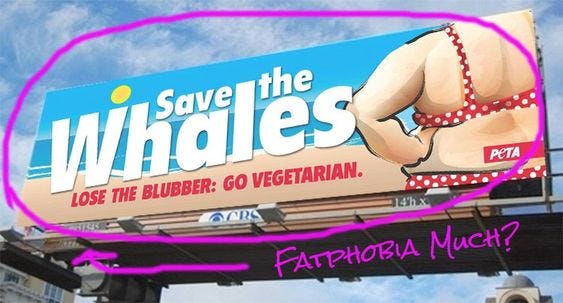Hey all! Sorry for being missing in action last week. Things have been super hectic around here; I've moved temporarily to Bali and been trying to settle into this new environment.
Having almost been a year of talking about my eating disorder.. I get asked this question a lot. To be healthy, do you have to look “skinny”? The answer is absolutely not. When I was at my heaviest, my blood test results were actually better than when I was seemingly at my “healthiest” (days of working out 6 days a week, eating clean).
This week I want to touch on obesity stigma. What is obesity stigma? Obesity stigma is the disapproval of, or discrimination against, a person based on their body size and shape. One example of obesity stigma is “If you are fat, it means you’re lazy.” This itself is a dangerous stereotype of an individual who is on the heavier side of the scale. There are many examples of obesity stigma, and it happens because we have obesity bias. These bias can include associating being fat with laziness, lack of will power, a lack of moral character, bad hygiene, low level of intelligence and unattractiveness.
Another common cause of obesity bias is the use of BMI (Body Mass Index). BMI is derived from the mass and height of a person and a high BMI can be an indicator of high body fatness. However, it is a flawed method of deciding whether someone is healthy or not. One of the reasons is that it has absolutely no way of discriminating fat and muscle. This is why many health coaches now completely ditched the idea of weighing their clients. Weight loss does not mean becoming healthy. Health should not be measured by our weight, but by our blood results. Blood results give us a more informative look on our cholesterol, blood sugar, and hormones.
Research has shown that 47% of girls and 34% of boys with overweight report being victimized by family members. When children and young people are bullied or victimized because of their weight by peers, family and friends, it can trigger feelings of shame and lead to depression, low self-esteem, poor body image and even suicide. Shame and depression can lead children to avoid exercising or eating in public for fear of public humiliation. Children and young people with obesity can experience teasing, verbal threats and physical assaults (for instance, being spat on, having property stolen or damaged, or being humiliated in public). They can also experience social isolation by being excluded from school and social activities or being ignored by classmates. All of this stems from obesity stigma.
Health is not just a look, just like many mental health problems. We cannot just diminish that it does not exist just because light is rarely shined on it.
I hope with the knowledge of fat bias, we can all learn to be kinder to each other. It is not easy to overcome fat bias, but with knowledge I believe we can all empower each other. If you enjoyed this post, please feel free to share this with your friends.
See you guys next week!





